Graduate student workers and postdocs at Caltech are the latest in the US to score big wins in a new contract that was negotiated through a local chapter of the United Auto Workers. The contract, which was ratified on 29 January and slated to begin on 1 April, includes raises for the university’s graduate researchers and postdocs that represent increases of 25% and 13%, respectively, from autumn 2022 to autumn 2025.
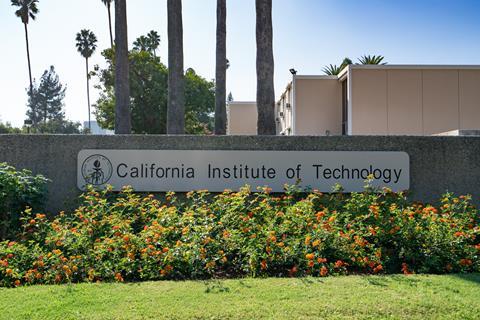
Under the new contract, postdocs’ base salary will rise to $72,723 (£58,466) in autumn 2025, and rise again to $75,268 in autumn 2026, with an additional minimum 2% raise each year of the contract until 2027. The stipends of graduate student employees will increase to $48,244 in autumn 2025 and rise again to $50,000 in autumn 2026.
Also included in the contract, which took seven months of bargaining, are expanded safeguards against harassment and discrimination on campus, as well as new protections for international graduate students and postdocs.
New protections against abusive conduct and bullying include third-party mediation within 90 days. ‘A lot of my peers … who have had to deal with abusive principal investigators or forms of discrimination or harassment – either from administrators or other graduate students, or [principal investigators] – had no recourse,’ says Shruteek Mairal, a graduate student who joined Caltech’s chemical engineering department in 2023.
Caltech also agreed to significant protections for international grad student workers and postdocs, such as a visa fee and travel reimbursement of up to $500, a guaranteed week of paid time off for visa proceedings abroad and two-year minimum initial appointments for all new postdocs.
In addition, there are expanded health and safety provisions, such as the right to refuse unsafe work without retaliation in parallel to enforcement by Environmental, Health, and Safety officials, as well as workspace safety rights and childcare assistance.
Caltech’s postdoc and graduate student union, which now has more than 2000 members, was set up in January last year. Then, in December 2024, its membership voted to authorise strike action in appropriate circumstances. Next, a ‘practice picket’ was threatened to give Caltech a last chance to make an acceptable offer on pay and benefits to employees.
Kindled by wildfires
The Los Angeles wildfire emergency that erupted on 7 January created a new sense of urgency at the bargaining table that sped up the contract process, according to Mairal. ‘I personally know multiple people who lost their homes, or whose homes are now unliveable – either in my research group or personal friends of mine in Caltech,’ he tells Chemistry World. ‘Almost all of us were affected in some way by the fires, in terms of having difficulty breathing and not being able to come to campus for a week, for example.’
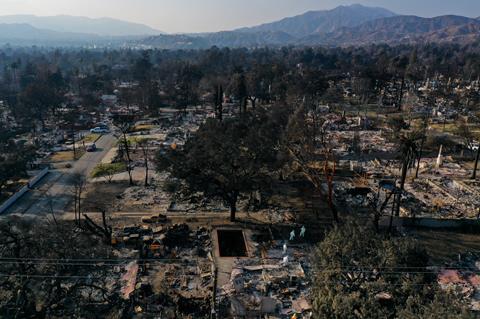
But Caltech, located in Pasadena, northeast of downtown Los Angeles, was largely spared. Mairal notes that none of the university’s buildings sustained damage, although the extreme winds that accompanied the fires knocked down many trees on campus and the widespread smoke shut the university for a week.
Unionisation at US universities, which began several years ago, was made possible by the National Labor Relations Board’s 2016 ruling that graduate students have as much legal right to unionise as private sector employees. This movement scored one of its first big wins following an extraordinary 40-day strike by tens of thousands of postdocs and academic researchers at the 10 campuses of the University of California, supercharging the movement at other US universities. These ideas are now taking root in other countries, according to Mairal.
‘I would not be surprised if that’s having knock-on effects, especially because it’s such a small community,’ Mairal states. ‘Even within small subfields, like chemical engineering, that makes a huge difference because people talk and when you find out that those at another university unionised and achieved certain rights, that inspires you to do this as well.’
Caltech’s Bargaining Committee released a statement saying the agreed-upon contract ‘reinforces the institute’s commitment to educate, train, and support the best and brightest scientists and engineers, and to ensure that the Caltech environment supports all members of our community in advancing groundbreaking research and discovery’.
Further, the committee emphasised that the final agreement ensures both parties’ mutual understanding that questions of academic judgment and academic decisions – including on matters related to faculty hiring, promotion, and tenure as well as academic standards and progress – remain the sole discretion of Caltech.





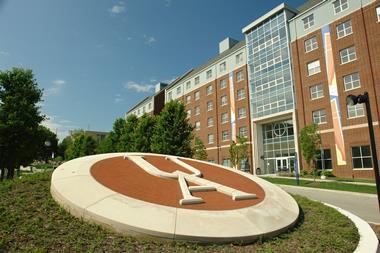

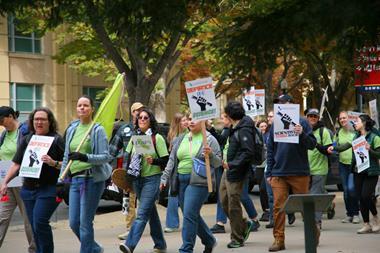
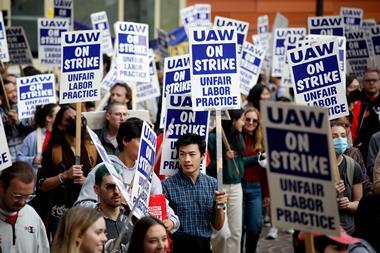

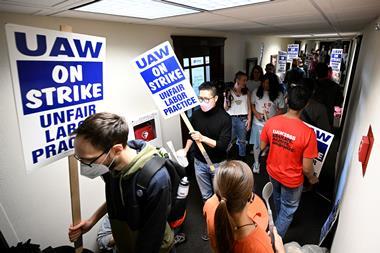






No comments yet